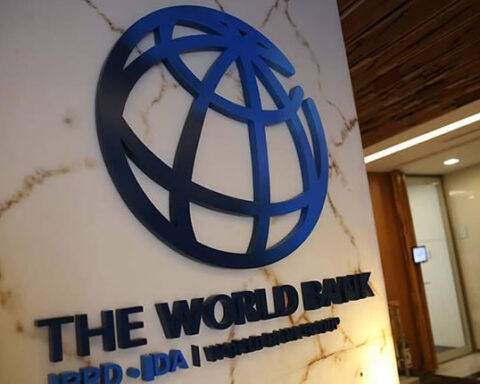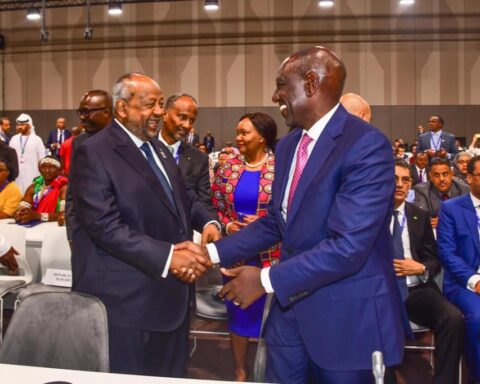The International Air Transportation Association (IATA) on Thursday announced the frustration of foreign airlines over their inability to repatriate trapped dollars totaling about $464 million as of July, 2022, showing a $14 million increase from what it was in May, about three months earlier. It therefore urged the federal government of Nigeria to prioritize the release of the funds to prevent escalation, because when airlines are unable to repatriate their funds, it severely impedes operations and limits the number of markets they can serve.
READ ALSO: Foreign Airlines’ Trapped Funds In Nigeria Up $14 million In Two Months – IATA
Join our WhatsApp ChannelThe trapped dollars in question are revenues realized from air ticket sales in Nigeria. As private or foreign investments, airlines need such revenues to operate, and withholding them could hurt international flight operations, with the possibility of loss of connectivity, harm to the nation’s economy, diminished investor confidence, job loss and perception of the country as a high-risk place to do business.
It’s the convention for airline operators to price and sell air tickets in the local currency of the country in which the tickets are sold. However, such funds need to be converted into the currency of their main operating country, before they can be repatriated in line with the Bilateral Air Services Agreement (BASA). BASA provides that each designated airline shall have the right to convert and remit to its country on demand, local revenues in excess of sums locally disbursed. Conversion and remittance shall be permitted without delay in accordance with the prevailing foreign exchange regulations. The situation in Nigeria is that, foreign airlines are not able to source foreign exchange needed to convert the revenues generated in Naira to the Dollar, hence, the trapped dollars controversy.
Globally, about $1.6 billion funds were blocked by 20 countries, and 67 per cent of these trapped dollars totaling about $1 billion is tied up in 12 African countries.
The African countries that retain funds of international carriers include Ethiopia ($75 million), Eritrea ($79 million), Algeria ($96 million) and Zimbabwe ($100 million). The IATA reveals that, by withholding $450 million in May, Nigeria tops, not just as country with the most amount of trapped dollars by any single African country, but one that retains over 25 per cent of the amount of international carriers’ funds held back by central banks of many countries across the world.
Nigeria currently battles with challenges associated with securing foreign exchange due mainly to a slowdown in global economic activities occasioned by the COVID-19 pandemic.
However, we consider as germane, the reminder by Kamal Al Awadhi, IATA Vice President for Africa and the Middle East that air connectivity is a vital economic catalyst, and that governments should “prioritize aviation in the access to foreign exchange.”
The aviation industry, from this newspaper’s assessment, is capable of driving economic activities that can ameliorate the economic slowdown that leads to forex shortages. Foreign airlines, in addition to other social and economic benefits to clients and investors, facilitate international tourism, boost commerce and support employment.
On the part of the airlines, the effect of this situation is unsustainable air service to Nigeria, in addition to other economic loses. Already, Emirates Airlines, the United Arab Emirates’ (UAE) flag carrier, has revealed plans to suspend flights to Nigeria with effect from September 1, 2022 over its $85 million revenue awaiting repatriation. IATA has also warned of the possibility of other foreign airlines following suit before the end of the year except the trapped funds are released.
In the event of these ‘withdrawals’ by foreign airlines, Nigerians may have to travel to neighboring countries like Ghana, Benin, and Togo to connect international flights. The consequence, if it happens, is that the government will lose a substantial amount of its aviation earnings to these countries.
Travelers are not also spared of the aftermath of the crisis as international airlines now charge higher fares to Nigeria than other countries in a bid to make more profit from one leg of the trip to ward off whatever effect inability to repatriate revenues may have on their operations. Travelers are charged as much as N1.2 million for a one-way economy ticket for a six to eight-hour flight and N3 million for round-trip tickets. One-way business class tickets sell for N4 million, while round-trip tickets sell for N7 million respectively.
Foreign Airlines Are Unfair; They Exploit Nigerians
IATA’s Kamil Alawadhi had acknowledged that the foreign airlines charge three times higher than what they charge in countries that do not retain airlines’ revenues. He also predicted that the fares might continue to rise. Apart from this hike in air fares, which we consider outrageous and exploitative, it is surprising that such hike is not witnessed in other countries that equally blocked funds belonging to foreign airlines. We wonder the reasons for this outrageously discriminatory policy. Government must as a matter of urgency do all that is necessary to stop further exploitation of Nigerian travelers.
Rather than deploy this harsh approach, foreign airlines can align with the Agenda Item 39 of the International Civil Aviation Organization (ICAO) which provides that where airlines have significant local currency amounts that they are unable to convert and repatriate, they should seek innovative ways to use those funds. They can, for instance, find local organizations that might wish to buy some of the airlines’ local funds. They can also, pay local expenses such as airport fees, ATC charges, fuel charges, ground handling, catering, and others using these local currencies.
Challenged by the threat of a total collapse of the foreign flight services, the government must prove its capacity to handle the situation by, among other things, empowering some of the local airlines to operate internationally. Airpeace is leading the way in this regard without any clear support from the Nigerian government. The President Muhammadu Buhari-led government should be intentional about supporting privately-owned local airlines taking the bold steps to fly international routes.
Nigeria had a national carrier- the defunct Nigerian Airways which ceased operations in 2003. The airline which had 30 aircraft in its heyday, served both domestic and international destinations, especially West Africa, and some points in Europe, North America and Saudi Arabia. It’s however, unfortunate that, the country allowed such national asset to be destroyed by the ‘Nigerian factor syndrome’ – poor management of public utilities.
We believe that the economic implications of a shutdown of operations by Emirates Airlines and other international carriers would be minimal if the country had a functional carrier flying international routes. Apart from this, a national carrier would have been one of Nigeria’s major sources of foreign exchange.
Lessons must be drawn from Ethiopia which, unlike Nigeria, prioritized its airlines, the Ethiopian Airlines, and today controls a fleet of 138 aircraft serving about 127 international destinations. The Ethiopian Airlines covers more destinations in Africa than any other international carrier. Its annual profit published in June 2022 stood at $4.8 billion US Dollars.
Like Nigeria, Ethiopia also blocked funds belonging to foreign airlines, but, the stringent measures forced on Nigerians, is not applicable to Ethiopia for obvious reasons.
Nigerian leaders must wake up to the clarion call of duty!













![Gender Activism An Economic Necessity In Africa [PBA Editorial]](https://www.primebusiness.africa/wp-content/uploads/2023/11/vaw-480x384.png)

